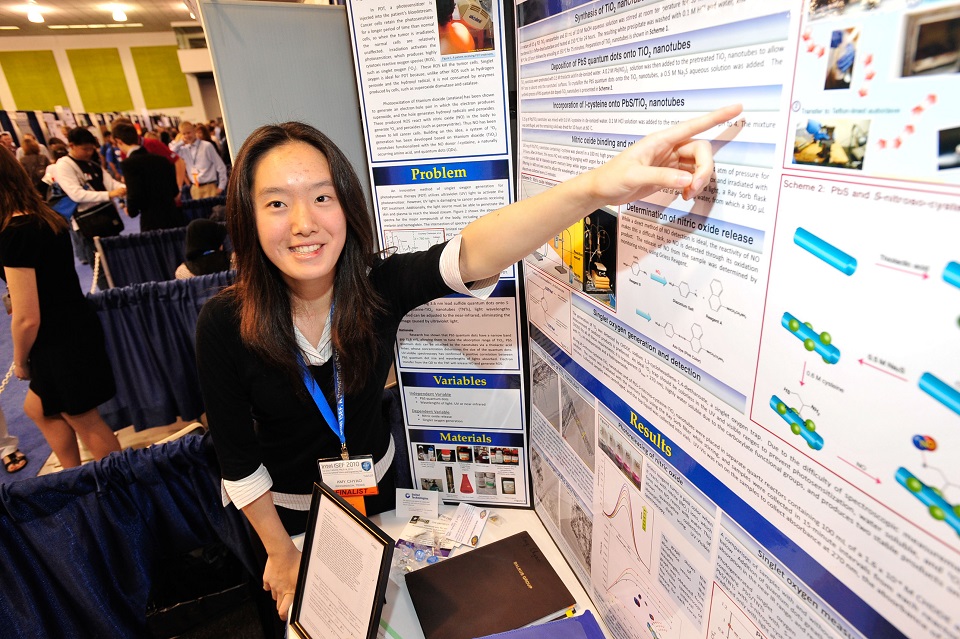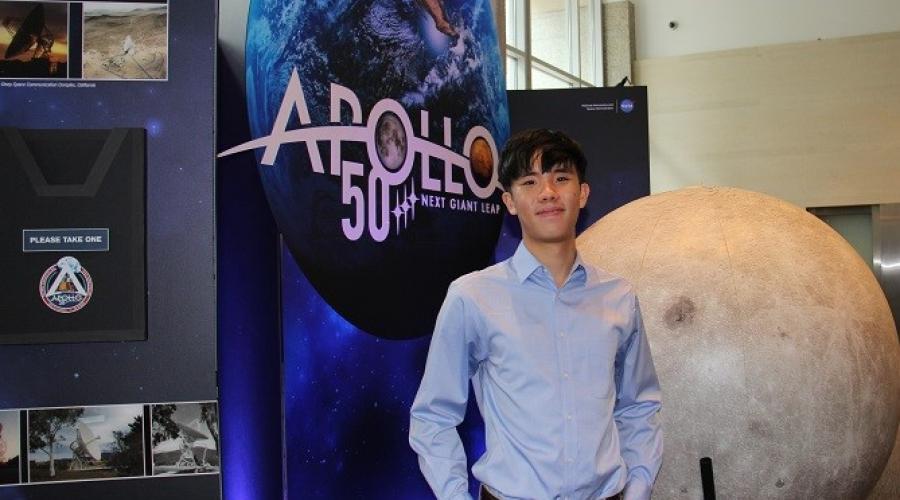Bayer Helps “Make Science Make Sense” at Intel ISEF 2012
Bayer Corporation, headquartered in Pittsburgh, is a subsidiary of Bayer AG, an international health care, nutrition and high-tech materials group based in Leverkusen, Germany. The corporation is committed to the principles of sustainable development and to its role as a socially and ethically responsible corporate citizen. Answers were provided by Lauren Trocano, Manager of Corporate Social Responsibility and Internal Communications for Bayer Corporation.
Can you tell us about your organization and why scientific research is important to it?
As an inventor company with the mission, “Bayer: Science for a Better Life,” our scientific research results in the creation of products in the areas of health care, nutrition, and high-tech materials that are designed to benefit people and improve their quality of life. For Bayer, our commitment to scientific research is critical because it allows us to meet our core values as a company.
What made your organization decide to be a sponsor of Intel ISEF 2012?
For nearly the last two decades, Bayer has been involved with strengthening science education through its award-winning, companywide initiative Making Science Make Sense®. The program aims to improve science literacy in the United States through the support of hands-on, inquiry-based science education, a national corps of employee volunteers, and a public education awareness campaign led by the nation’s first African-American female astronaut, Dr. Mae C. Jemison.
When we learned that the Intel International Science and Engineering Fair (Intel ISEF) 2012 was coming to Pittsburgh, we, of course, wanted to be involved… after all, it is the world’s largest international pre-college science competition. Participating in ISEF 2012 also gave Bayer employee-volunteers the opportunity to meet firsthand with some of the thousands of students, teachers and organizations in attendance and let them know about Bayer’s STEM (science, technology, engineering and math) initiatives and projects, which start in elementary school and go right up through college.
You provided supportive funding to support Educational Outreach Day, where thousands of local school children and teachers were able to participate in hands-on activities and speak to Intel ISEF finalists about their projects. Why do you think it’s important to encourage students to pursue STEM fields? What kind of impact do you think participation in such events has on students?
To remain competitive, the U.S., its STEM industries and STEM communities must have access to a vibrant pool of diverse STEM workers who are well-trained, highly-skilled and who bring different ideas and perspectives to the table.
This means it is critically important that all students receive a quality STEM education. In addition, the STEM industries also need to ensure that students:
- recognize the myriad job opportunities that STEM fields hold for them;
- know that many of these jobs require a bachelor’s degree or less; and,
- understand there is a place for everyone – including women and underrepresented minorities — at the STEM table.
Early exposure to hands-on, hearts-on, minds-on science experiences, like the Intel ISEF, are important tools in capturing, nurturing and sustaining students’ interest in these fields.
Do you have any advice for young students interested in pursuing science? For organizations interested in becoming involved at Intel ISEF?
When it comes to students, our best advice is to be persistent. If you have a passion for science then you should pursue it. A recent Bayer survey of female and underrepresented minority chemists and chemical engineers found that more than 80 percent said that given everything, if they had to do it over again, they would still choose a STEM career.
For STEM companies and organizations that are interested in helping to support STEM education but not sure how to go about it, the Intel ISEF offers the perfect opportunity to jump in and get involved. For example, you’ll have the opportunity to network with other groups and discover potential education partnerships.
For companies already working in the STEM arena, Intel ISEF allows you to be able to promote your own STEM initiatives to a broad audience and share best practices.
In order to further galvanize STEM industry involvement in education, Bayer has published and made widely available several resource guides, including:
- Building a Diverse U.S. STEM Workforce: Perspectives on Creating Successful Business Education Partnerships;
- Planting the Seeds for a Diverse U.S. STEM Pipeline: A Compendium of Best Practice K-12 STEM Education Programs; and,
- STEM Education, Science Literacy and the Innovation Workforce in America: 2012 Analysis and Insights from the Bayer Facts of Science Education Surveys 1995 – 2011.
Collectively, these reports provide policymakers, business leaders and others with information about best practice K-12 STEM education programs and practical advice for how they can support and/or replicate such programs nationally or in their local communities. For more information or to download PDF copies, please visit www.bayerus.com/msms.


